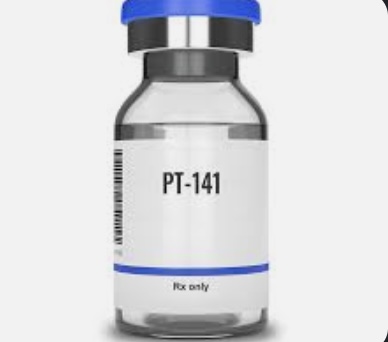PT-141 peptide is a synthetic peptide that has been gaining interest in recent years for its potential uses in the field of sexual medicine. PT-141, also known as Bremelanotide, is a melanocortin receptor agonist which means it activates melanocortin receptors. This peptide has been found to be effective in the treatment of sexual dysfunction, including both erectile dysfunction and female sexual dysfunction. In this article, we will explore the science behind PT-141 and its potential uses, as well as potential side effects and risks associated with its use.
What is PT-141 Peptide?
PT 141 peptide, also known as Bremelanotide, is a synthetic peptide that is structurally related to melanocyte-stimulating hormone (MSH). MSH is a naturally occurring peptide that plays a role in the regulation of pigmentation and sexual function. PT-141 is a melanocortin receptor agonist, which means it activates melanocortin receptors. This activation leads to increased sexual desire and arousal. PT-141 is different from other commonly used peptides in the field of sexual medicine, such as Viagra and Cialis, which work by increasing blood flow to the genitals rather than directly affecting sexual desire and arousal.
How Does PT-141 Peptide Work?
PT-141 works by activating melanocortin receptors in the brain. Melanocortin receptors are a type of G protein-coupled receptor that plays a role in a variety of physiological processes, including sexual function. When Peptides PT 141 bind to these receptors, it leads to increased sexual desire and arousal. The exact mechanism by which PT-141 increases sexual desire and arousal is not fully understood, but it is thought to involve the release of neurotransmitters such as dopamine and norepinephrine.
Potential Uses of PT-141 Peptide
PT-141 has been found to be effective in the treatment of sexual dysfunction, including both erectile dysfunction and female sexual dysfunction. In clinical trials, men and women who used PT-141 reported increased sexual desire and arousal, as well as improved sexual function. Peptides PT-141 has also been explored as a potential treatment for other conditions, such as weight loss and skin rejuvenation. However, these uses are still in the early stages of research and have not yet been proven in clinical trials.
Potential Side Effects and Risks
Like all medications, Peptides PT-141 has potential side effects and risks associated with its use. The most common side effects reported in clinical trials include nausea, headache, and flushing. Other potential side effects include increased blood pressure and heart rate. It is important to note that PT-141 is still in the early stages of research, so the full spectrum of side effects and risks associated with its use is not yet known.
Conclusion
PT-141 peptide, also known as Bremelanotide, is a synthetic peptide that has been found to be effective in the treatment of sexual dysfunction, including both erectile dysfunction and female sexual dysfunction. By activating melanocortin receptors in the brain, PT-141 increases sexual desire and arousal. While Peptides PT-141 has been found to be effective in treating sexual dysfunction, PT-141 is considered a promising peptide in the field of sexual medicine and its potential uses are still being explored.

